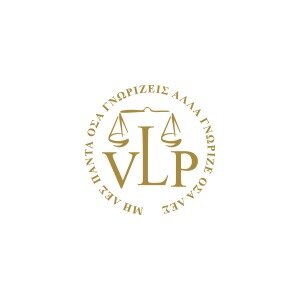Best Art & Cultural Property Law Lawyers in Athens
Share your needs with us, get contacted by law firms.
Free. Takes 2 min.
List of the best lawyers in Athens, Greece
About Art & Cultural Property Law in Athens, Greece
Art & Cultural Property Law in Athens, Greece, encompasses a wide range of legal issues related to the ownership, protection, and management of art and cultural heritage. Given Greece's rich historical and cultural heritage, these laws are crucial in preserving its archaeological sites, works of art, and cultural artifacts. The legal framework combines international conventions and treaties, national statutes, and local regulations to ensure the protection and repatriation of cultural property.
Why You May Need a Lawyer
Engaging a lawyer specializing in Art & Cultural Property Law can be essential for various reasons. Individuals and institutions may require legal assistance in situations such as inheritance or sale of art and antiquities, disputes over provenance or authenticity of artworks, claims for the repatriation of cultural artifacts, and allegations of illicit trafficking. Lawyers can also help navigate complex regulations governing the excavation, export, or transfer of cultural property.
Local Laws Overview
In Athens, the legal landscape for Art & Cultural Property includes notable legislation such as the Archaeological Law that protects antiquities and sets out the legal framework for archaeological research and excavation. The Ministry of Culture and Sports plays a pivotal role in overseeing compliance with these laws. A key aspect of the law is the stipulation that all antiquities found in Greece are considered state property. Additionally, specific procedures govern the export of cultural goods, requiring permits to ensure legality.
Frequently Asked Questions
What constitutes a cultural property under Greek law?
Cultural property includes monuments, archaeological sites, works of art, manuscripts, and other significant items of archaeological, historical, or cultural value.
Can cultural property be privately owned?
While Greece considers many ancient cultural artifacts as state property, certain items may be privately owned if legally acquired. Importantly, the sale and possession of such items must comply with national legislation.
What are the penalties for illegal export of cultural property?
Illegal export of cultural property can result in severe penalties, including imprisonment, fines, and confiscation of artifacts. Offenders may also face international legal proceedings if they breach cross-border laws.
How is cultural property authenticated?
Authentication involves expert analysis by government-appointed archaeologists or historians, often using scientific methods to verify an artifact’s age, origin, and legality.
What legal protections exist for artists in Athens?
Artists in Athens are protected by intellectual property laws, ensuring their works are not reproduced or exploited without permission, and they receive appropriate compensation and recognition.
How can disputes over cultural property be resolved?
Disputes can be resolved through negotiation, mediation, or court proceedings. Engaging a specialized lawyer can help navigate these complex disputes, offering options for resolution.
Are there specific permits required for excavating archaeological sites?
Yes, excavation permits are strictly regulated and must be obtained through the Ministry of Culture and Sports. Unauthorized excavation is illegal and subject to strict penalties.
What role do international treaties play in Greek cultural property law?
Greece adheres to international agreements such as the UNESCO Convention, which combat the illicit trade of cultural property and facilitate the return of stolen artifacts to their rightful owners.
What are the responsibilities of museums regarding cultural property in Athens?
Museums are responsible for the proper management, preservation, and documentation of their collections and ensuring compliance with national and international legal standards.
How can I verify if an artwork for sale is legally obtained?
Prospective buyers should seek legal advice and request the paperwork for provenance, including any export licenses, and certification by legitimate authorities to ensure legality.
Additional Resources
For further information and assistance, consider contacting the Ministry of Culture and Sports for regulations and permits, the Hellenic Police for reports of theft or trafficking, and UNESCO for international guidelines regarding cultural property. Organizations like the Hellenic Committee of the Blue Shield also offer support for cultural heritage protection.
Next Steps
If you require legal assistance in matters of Art & Cultural Property Law in Athens, consider consulting with a lawyer specializing in this field. They can provide guidance tailored to your specific situation, whether it involves inheritance issues, disputes over artifacts, or compliance with cultural heritage laws. Start by gathering all relevant documents and details regarding your case, and arrange a consultation to explore your legal options. Engaging with professional legal services will ensure you navigate the complexities of cultural property law effectively.
Lawzana helps you find the best lawyers and law firms in Athens through a curated and pre-screened list of qualified legal professionals. Our platform offers rankings and detailed profiles of attorneys and law firms, allowing you to compare based on practice areas, including Art & Cultural Property Law, experience, and client feedback.
Each profile includes a description of the firm's areas of practice, client reviews, team members and partners, year of establishment, spoken languages, office locations, contact information, social media presence, and any published articles or resources. Most firms on our platform speak English and are experienced in both local and international legal matters.
Get a quote from top-rated law firms in Athens, Greece — quickly, securely, and without unnecessary hassle.
Disclaimer:
The information provided on this page is for general informational purposes only and does not constitute legal advice. While we strive to ensure the accuracy and relevance of the content, legal information may change over time, and interpretations of the law can vary. You should always consult with a qualified legal professional for advice specific to your situation.
We disclaim all liability for actions taken or not taken based on the content of this page. If you believe any information is incorrect or outdated, please contact us, and we will review and update it where appropriate.
















